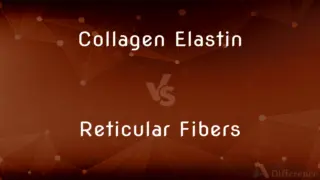Critical vs. Uncritical — What's the Difference?
By Maham Liaqat & Fiza Rafique — Updated on April 30, 2024
Critical thinking involves actively evaluating information and arguments, while uncritical thinking accepts them without scrutiny.

Difference Between Critical and Uncritical
Table of Contents
ADVERTISEMENT
Key Differences
Critical thinking requires the thinker to actively question and analyze information, considering multiple viewpoints and evidence before forming a conclusion. On the other hand, uncritical thinking involves accepting information or arguments at face value without questioning their validity or exploring further.
Critical thinkers are often skeptical of new information until they have thoroughly evaluated it. Whereas, uncritical thinkers tend to be more accepting and may readily believe information without sufficient proof.
In problem-solving, critical thinking encourages innovative solutions by exploring various possible outcomes and systematically eliminating less viable options. Conversely, uncritical thinking may lead to conventional solutions that might not effectively address complex issues.
Critical thinking often involves a deliberate, thoughtful process aimed at achieving the most logical and unbiased conclusion. In contrast, uncritical thinking might rely more on intuition or established norms, which may not always lead to accurate or fair outcomes.
Education systems that promote critical thinking skills equip students to handle complex situations in professional and personal spheres effectively. Meanwhile, systems that do not emphasize these skills might produce individuals who are less prepared to critically assess situations or ideas.
ADVERTISEMENT
Comparison Chart
Definition
Analyzing and evaluating information critically
Accepting information without questioning
Approach to Information
Skeptical and questioning
Accepting and affirming
Problem Solving
Seeks innovative, well-rounded solutions
Often sticks to conventional solutions
Outcome
Logical, unbiased conclusions
Potentially biased or inaccurate conclusions
Educational Impact
Promotes comprehensive understanding
May hinder deep understanding and adaptation
Compare with Definitions
Critical
Involving or exercising careful judgment or judicious evaluation.
Critical reviews help consumers make informed choices.
Uncritical
Accepting or believing without question or criticism.
Uncritical admiration can prevent constructive feedback.
Critical
Relating to criticism or the careful analysis and judgment of merits and faults.
The literary critique offered a critical analysis of the novel.
Uncritical
Not exhibiting judgment or discernment, particularly in evaluation.
Uncritical acceptance of information can lead to misinformation.
Critical
Denoting a point of transition from one state to another; crisis.
The patient is in a critical condition.
Uncritical
Not critical; not pertaining to criticism or careful analysis.
His uncritical loyalty blinded him to the faults of his leader.
Critical
Inclined to find fault or judge with severity.
She has a critical eye for detail in her artwork.
Uncritical
Showing no disposition to criticize or find fault.
An uncritical summary does not highlight the shortcomings.
Critical
Crucial or essential, as in a critical component of the process.
Water is critical for all life forms.
Uncritical
Lacking in discrimination or analytical acumen.
Uncritical reading often misses deeper narratives in texts.
Critical
Expressing adverse or disapproving comments or judgements
I was very critical of the previous regime
Uncritical
Not critical; undiscriminating or indulgent.
Critical
Expressing or involving an analysis of the merits and faults of a work of literature, music, or art
She never won the critical acclaim she sought
Uncritical
Not using critical standards or methods, as in evaluation.
Critical
(of a situation or problem) having the potential to become disastrous; at a point of crisis
The floodwaters had not receded and the situation was still critical
Uncritical
Lacking critique or critical examination; undiscriminating.
Critical
Relating to or denoting a point of transition from one state to another
If the density is less than a certain critical value the gravitational attraction will be too weak to halt the expansion
Uncritical
Having a disregard for critical standards or procedures.
Critical
(of a nuclear reactor or fuel) maintaining a self-sustaining chain reaction
The reactor is due to go critical in October
Uncritical
Slow to criticize.
Critical
Judging severely and finding fault
A writer who is very critical of the government's foreign policy.
Uncritical
Marked by disregard for critical standards or procedures;
News sources reflected uncritical estimates of the number of juvenile addicts
Critical
Relating to or characterized by criticism; reflecting careful analysis and judgment
A critical appreciation of the filmmaker's work.
Uncritical
Not critical; not tending to find or call attention to errors;
A devoted and almost uncritical admirer
Critical
Of, relating to, or characteristic of critics
A play that received great critical acclaim.
Uncritical
Lacking in discrimination;
She was absolutely uncritical, she believed everything
Critical
Including scholarly commentary and interpretation
A critical edition of Poe's stories.
Critical
Forming or having the nature of a turning point; crucial or decisive
A critical point in the campaign.
Critical
(Medicine) Being or relating to a grave physical condition, especially of a patient.
Critical
Being in or verging on a state of crisis or emergency
A critical shortage of food.
Critical
Extremely important or essential
A critical element of the plan.
A second income that is critical to the family's well-being.
Critical
(Mathematics) Of or relating to a point at which a curve has a horizontal tangent line, as at a maximum or minimum.
Critical
Chemistry & Physics Of or relating to the value of a measurement, such as temperature, at which an abrupt change in a quality, property, or state occurs
A critical temperature of water is 100°C, its boiling point at standard atmospheric pressure.
Critical
(Physics) Capable of sustaining a nuclear chain reaction
The reactor has gone critical.
Critical
Inclined to find fault or criticize.
A good teacher is fair but critical.
Critical
Pertaining to, or indicating, a crisis or turning point.
This is a critical moment.
Critical
Extremely important.
It's critical that you deliver this on time.
Critical
Relating to criticism or careful analysis, such as literary or film criticism.
The movie was a critical success, but bombed at the box-office.
Critical
(medicine) Of a patient condition involving unstable vital signs and a prognosis that predicts the condition could worsen; or, a patient condition that requires urgent treatment in an intensive care or critical care medical facility.
The patient's condition is critical.
Critical
Likely to go out of control if disturbed, that is, opposite of stable.
The political situation was so critical that the government declared the state of siege.
Critical
(physics) Of the point (in temperature, reagent concentration etc.) where a nuclear or chemical reaction becomes self-sustaining.
The reaction was about to become critical.
Critical
(physics) Of a temperature that is equal to the temperature of the critical point of a substance, i.e. the temperature above which the substance cannot be liquefied.
Critical
A critical value, factor, etc.
Critical
In breakdancing, a kind of airflare move in which the dancer hops from one hand to the other.
Critical
Qualified to criticise, or pass judgment upon, literary or artistic productions.
It is submitted to the judgment of more critical ears to direct and determine what is graceful and what is not.
Critical
Pertaining to criticism or the critic's art; of the nature of a criticism; accurate; as, critical knowledge; a critical dissertation.
Critical
Inclined to make nice distinctions, or to exercise careful judgment and selection; exact; nicely judicious.
Virgil was so critical in the rites of religion, that he would never have brought in such prayers as these, if they had not been agreeable to the Roman customs.
Critical
Inclined to criticise or find fault; fastidious; captious; censorious; exacting.
O gentle lady, do not put me to 't,For I am nothing, if not critical.
Critical
Characterized by thoroughness and a reference to principles, as becomes a critic; as, a critical analysis of a subject.
Critical
Pertaining to, or indicating, a crisis, turning point, or specially important juncture; important as regards consequences; hence, of doubtful issue; attended with risk; dangerous; as, the critical stage of a fever; a critical situation.
Our circumstances are indeed critical.
The small moment, the exact point, the critical minute, on which every good work so much depends.
Critical
Marked by a tendency to find and call attention to errors and flaws;
A critical attitude
Critical
At or of a point at which a property or phenomenon suffers an abrupt change especially having enough mass to sustain a chain reaction;
A critical temperature of water is 100 degrees C--its boiling point at standard atmospheric pressure
Critical mass
Go critical
Critical
Characterized by careful evaluation and judgment;
A critical reading
A critical dissertation
A critical analysis of Melville's writings
Critical
Urgently needed; absolutely necessary;
A critical element of the plan
Critical medical supplies
Vital for a healthy society
Of vital interest
Critical
Forming or having the nature of a turning point or crisis;
A critical point in the campaign
The critical test
Critical
Being in or verging on a state of crisis or emergency;
A critical shortage of food
A critical illness
An illness at the critical stage
Critical
Of or involving or characteristic of critics or criticism;
Critical acclaim
Common Curiosities
Is uncritical thinking ever beneficial?
While generally seen as less desirable, uncritical thinking may be beneficial in situations requiring quick decision-making based on trusted sources.
How can one improve their critical thinking skills?
Engaging in debates, reading analytically, and practicing problem-solving scenarios can enhance critical thinking abilities.
What are the risks of uncritical thinking in media consumption?
Uncritical thinking can lead to the acceptance of misinformation and biased views without scrutiny.
How does uncritical thinking affect decision making?
Uncritical thinking can lead to poorer decision making by failing to consider all relevant information and potential consequences.
What role does skepticism play in critical thinking?
Skepticism is a fundamental aspect of critical thinking, as it encourages questioning and the search for evidence.
What is critical thinking?
Critical thinking is the process of actively and skillfully conceptualizing, applying, analyzing, synthesizing, and evaluating information gathered from observation, experience, reflection, reasoning, or communication.
Can critical thinking be taught?
Yes, critical thinking skills can be developed through targeted educational programs and practice.
Why is critical thinking important in education?
Critical thinking skills help students analyze information effectively, fostering better learning and more informed decision-making.
How does culture impact critical and uncritical thinking?
Cultural norms can influence the emphasis on either critical or uncritical thinking, affecting how information is processed and decisions are made.
How does critical thinking affect creativity?
Critical thinking can enhance creativity by enabling the exploration of multiple perspectives and solutions.
Share Your Discovery

Previous Comparison
Chasse vs. Sashay
Next Comparison
Quake vs. TremorAuthor Spotlight
Written by
Maham LiaqatCo-written by
Fiza RafiqueFiza Rafique is a skilled content writer at AskDifference.com, where she meticulously refines and enhances written pieces. Drawing from her vast editorial expertise, Fiza ensures clarity, accuracy, and precision in every article. Passionate about language, she continually seeks to elevate the quality of content for readers worldwide.














































